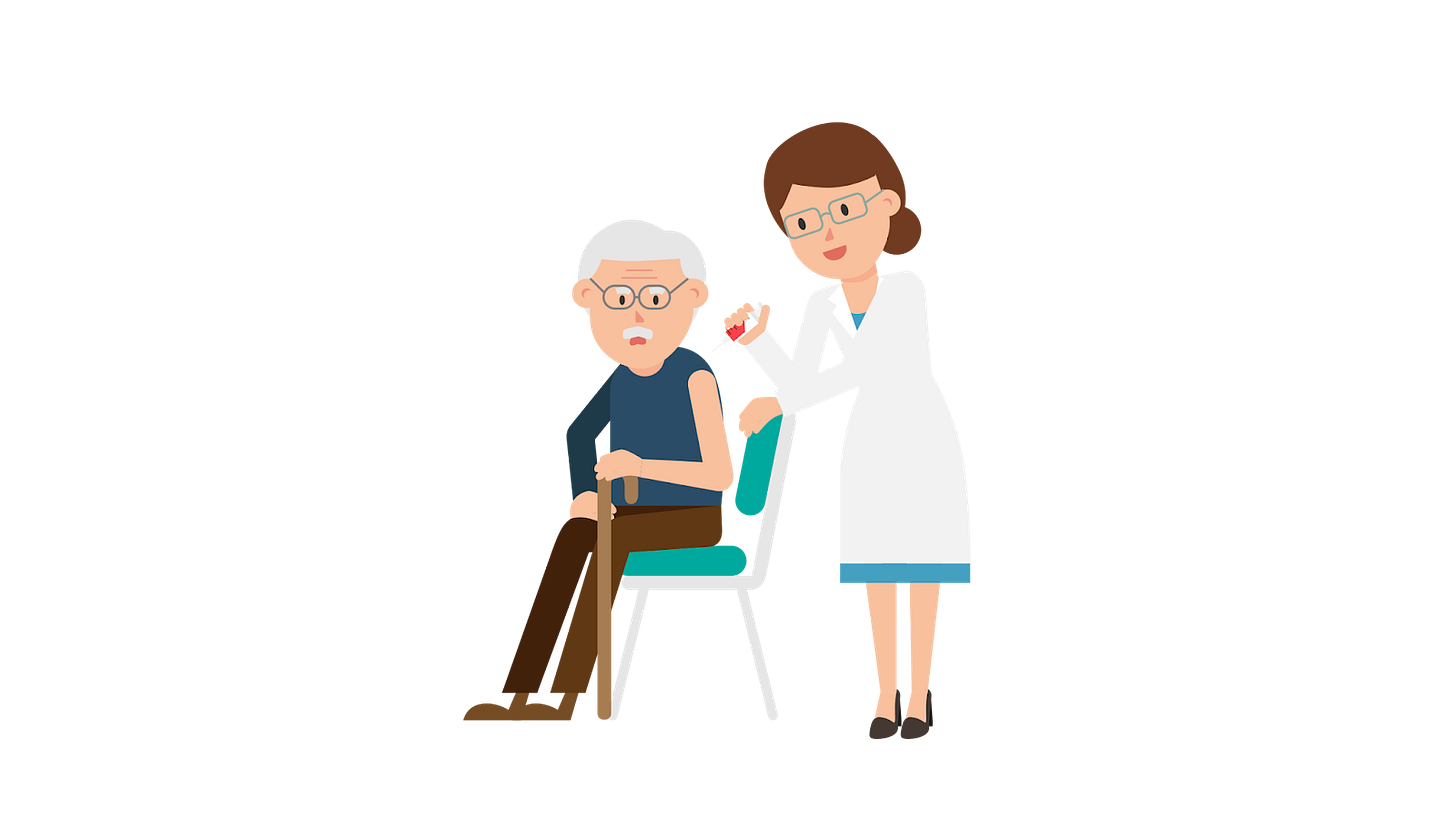Potential Barriers to Receiving Healthcare
Hey, Future Physicians!
I hope your new year is off to a good start. This newsletter is about possible barriers that someone may experience in trying to receive healthcare. Everyone has a different situation; it could be in terms of health status, economic status, location, and more. For some, some of these things may make it more difficult for them to receive the quality of healthcare that they may want or need, which can put the state of their health at risk. Being aware of some of these things can sometimes allow the doctor to empathize with their patients and understand why the state of their health might be the way that it is. Being able to understand a patient’s situation is a major part of becoming a doctor and can help you best know how to treat them.
Economic Status: A patient’s economic status has a major impact on their ability to regularly visit the doctor, purchase any medicines that they might need, and many more. Every patient will not have insurance to cover the bulk of their medical costs, and receiving adequate medical care can be extremely expensive, especially for those with conditions that may require them to go to the doctor very frequently. For those who may live in poverty or do not have the financial means to be able to regularly attend visits to the doctor, they are likely forced to make a choice between the things that they are able to afford in any given period of time. In addition to maintaining their health, these individuals still have to try and do things like provide housing and food for themselves, which are other extremely important things. Economic status also impacts the ability for someone to get transportation to and from the doctor’s office. This cost can add up for someone who must visit the doctor more often. If a patient is not able to drive or afford a car of their own, it can also decrease the reliability of their transportation since they will then have to rely on someone else for a ride or possibly even walk. Some may need childcare, which can also be expensive and difficult to find, in order to be able to visit the doctor and be actively listening and participating. Some may decide to put off regular medical appointments in order to be able to afford something else that they need. This may cause certain medical conditions to go unnoticed, possibly worsening the state of the health, and the person might not even be aware of it.
Geographic: The access to quality doctors in someone’s area can sometimes reduce their willingness to go to the doctor. There are more doctors available to those who live in more urban or suburban areas than there are for those who live in rural areas. This could cause people in rural areas to have to travel a great distance to see a particular doctor or a doctor in a particular specialty that they need. Having to do this can add to the cost of transportation and even the availability of it if they do not have a vehicle. In emergency situations, a patient in a rural area will likely have to travel farther to get to the nearest hospital than those who live in areas that are more populated. In some cases, that additional time can be detrimental to the patient’s state of health in an emergency.
Language/Communication: Clear communication between a doctor and a patient is extremely important. It ensures that both the patient and the doctor are on the same page, and it can help them work through any issues. Some patients may speak limited English or no English at all, and in a primarily English-speaking doctor’s office, that may present some communication issues for the doctor, patient, and even receptionist. For people with a language barrier, they may feel that their concerns are not seen or validated because the doctor or other medical professional is having a hard time understanding them and communicating with them. This may affect their willingness to visit the doctor again in the future, and they may be unclear about some instructions on how they should take care of their health. Having more doctors that can speak various different languages can alleviate this problem; patients can feel that their doctor truly understands their concerns and what they are saying. In addition, some medical terms can be complex and hard for some people to understand even if there is not a language barrier. It is important that doctors simplify the information they are trying to convey in a way that their patient will understand. This will likely be different for every patient. Patients should also feel encouraged to ask questions, and doctors should be able to answer them or point them in the right direction.
Level of Comfortability with Going to the Doctor: Everyone has a different level to which they are comfortable with going to the doctor. Some are anxious because they are worried about receiving life-changing news, and others may seem to not be affected by it. Other patients may be scared of aspects of the examination or appointment, such as needles. Some might have heard about negative experiences that friends or family members may have had at the doctor’s office. Regardless of the reason, it can cause some people to put off going to the doctor, potentially causing some health problems to be overlooked. It is important for doctors to try and create a welcoming environment in their office to the best of their ability.
About Future Physicians: Future Physicians is a nonprofit organization that connects aspiring medical school students with professional development opportunities, such as shadowing, research, and internships. We also send out newsletters every week about a wide variety of medical topics. If you are interested in medical school or the medical field, please feel free to sign up for our newsletter below to learn more about medicine and our organization. Also, please share Future Physicians with a friend to help them achieve their goals as well. Thank you so much for reading this and supporting the Future Physicians team and our goals.
Keep learning!
The Future Physicians Newsletter Team





